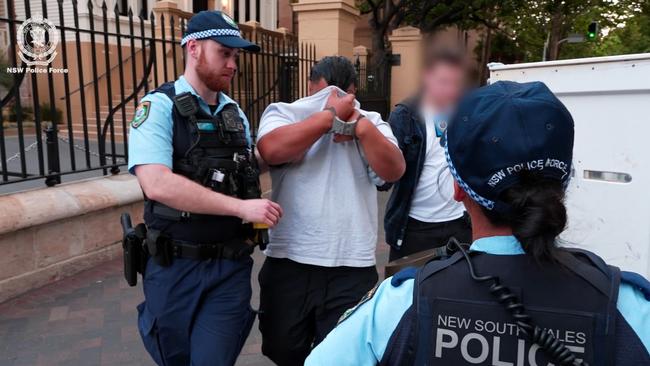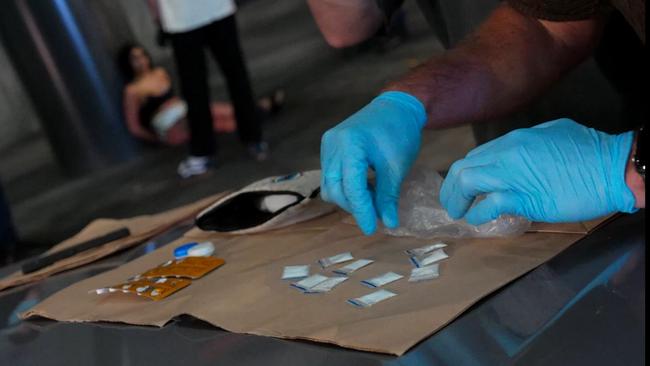Cocaine users get reprieve as NSW Police issue record fines, court backlog eases
Thanks to new laws, people caught with cocaine are far less likely to have to front court than they were last year. Here’s why.

NSW
Don't miss out on the headlines from NSW. Followed categories will be added to My News.
The number of drug users ending up in court for cocaine possession has dramatically decreased ever since police were given the option of issuing fines instead of charges, meaning almost a quarter of those caught with the party drug last year never had to face a magistrate.
A total of 23 per cent of all people caught with cocaine since last March walked away with a $400 criminal infringement notice (CIN), compared to 99 per cent who were sent to court in the month before the Minns government’s Early Drug Diversion Initiative (EDDI) commenced.
Fresh data from the Bureau of Crime Statistics and Research reveals that between March and September last year – the available period since the EDDI scheme began – 521 people faced court for cocaine possession, a significant drop on the 984 who fronted a magistrate in the seven months prior.

Police Minister Yasmin Catley said while the government remained steadfast in its view that drugs “cause widespread harm”, the ability for officers on the streets to use their discretion was important to “take pressure off the courts”.
“Make no mistake – drugs are illegal and cause widespread harm in our community … (but) the Early Drug Diversion Initiative gives police another way to address low-level drug possession,” Ms Catley said.
“If issued with an infringement notice, the individual can elect to pay a fine or complete a tailored health intervention session.
“This helps reduce the likelihood of reoffending, takes pressure off the courts and allows police to focus more resources on targeting crime.”
Under the EDDI scheme, NSW Police have the power to issue CINs for minor drug crimes including possession of cocaine, MDMA, heroin and methamphetamine (ice).

But that is only in situations where a person meets a strict criteria, including having only one type of drug in their possession, police being convinced the drugs are only for personal use, and that the quantity of drugs they have does not exceeding a specific amount.
If the person does not meet the criteria, police can still issue them with a court attendance notice.

Under the scheme, if the offender receives a $400 on-the-spot fine they can choose to pay it or alternatively speak with a doctor or health professional about their drug use, which will result in the fine being wiped.
Individuals can receive no more than two CINs for drug possession, with a third offence requiring police put them before a court.
While police have been issuing plenty of fines for possession of cocaine, police are continuing to put people before the courts when caught with drugs such as heroin.
Not a single person caught possessing heroin in August or September last year received a CIN.
More Coverage
Originally published as Cocaine users get reprieve as NSW Police issue record fines, court backlog eases





